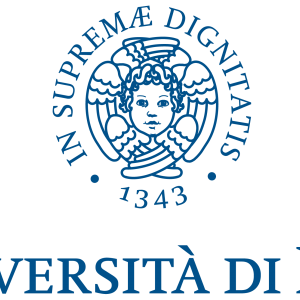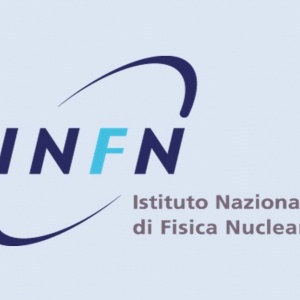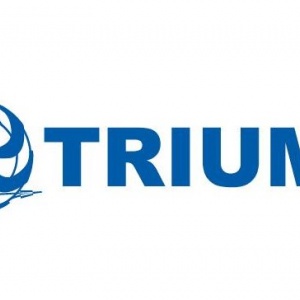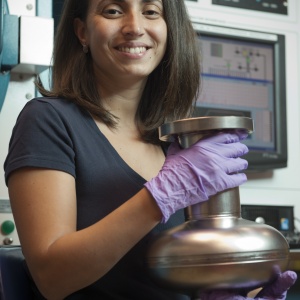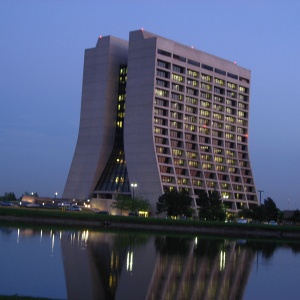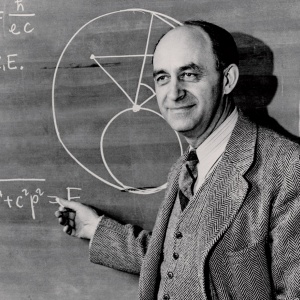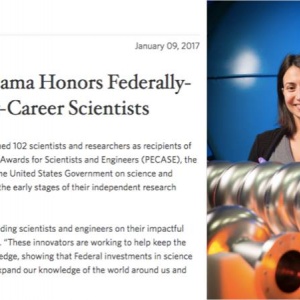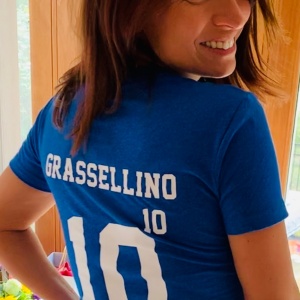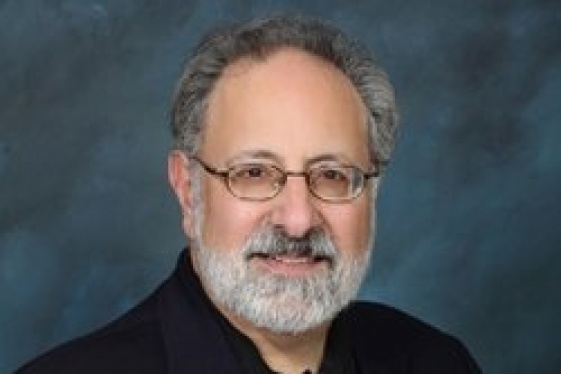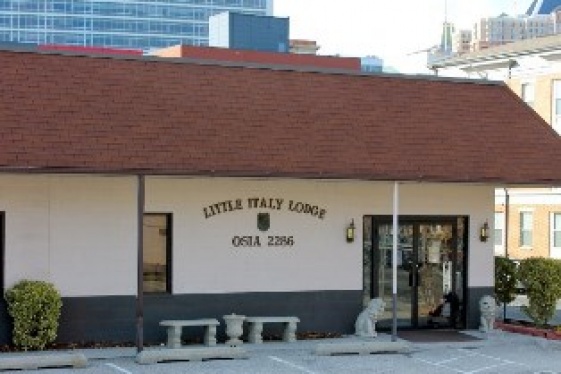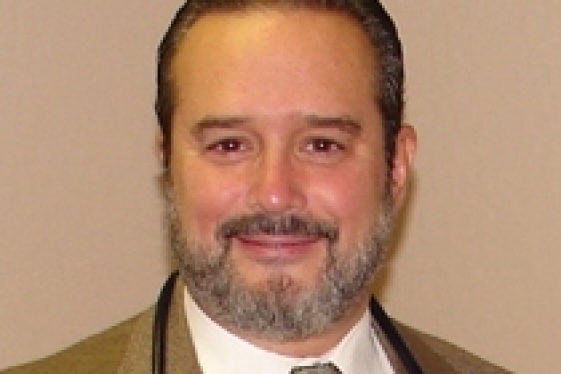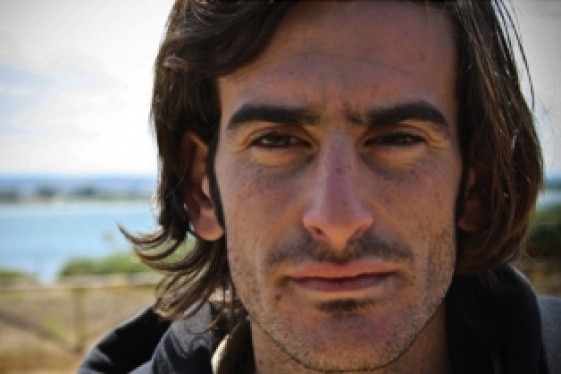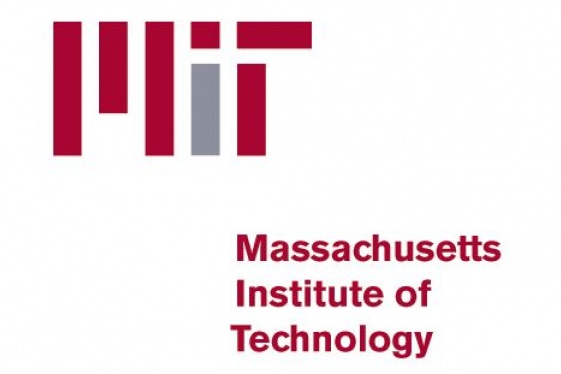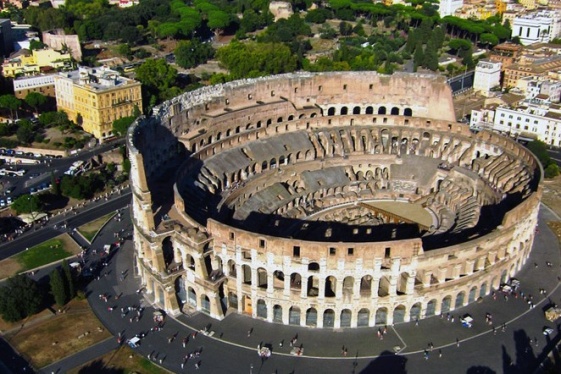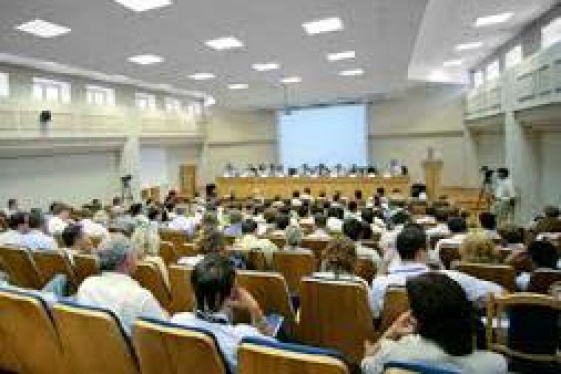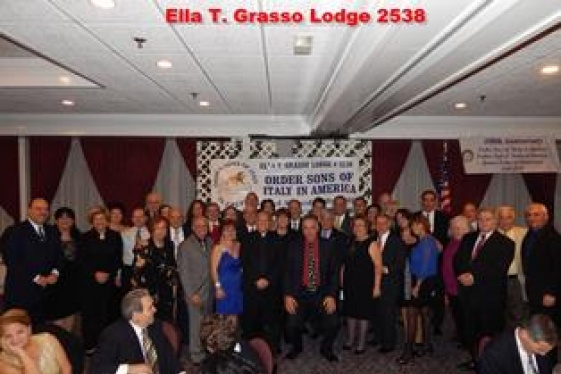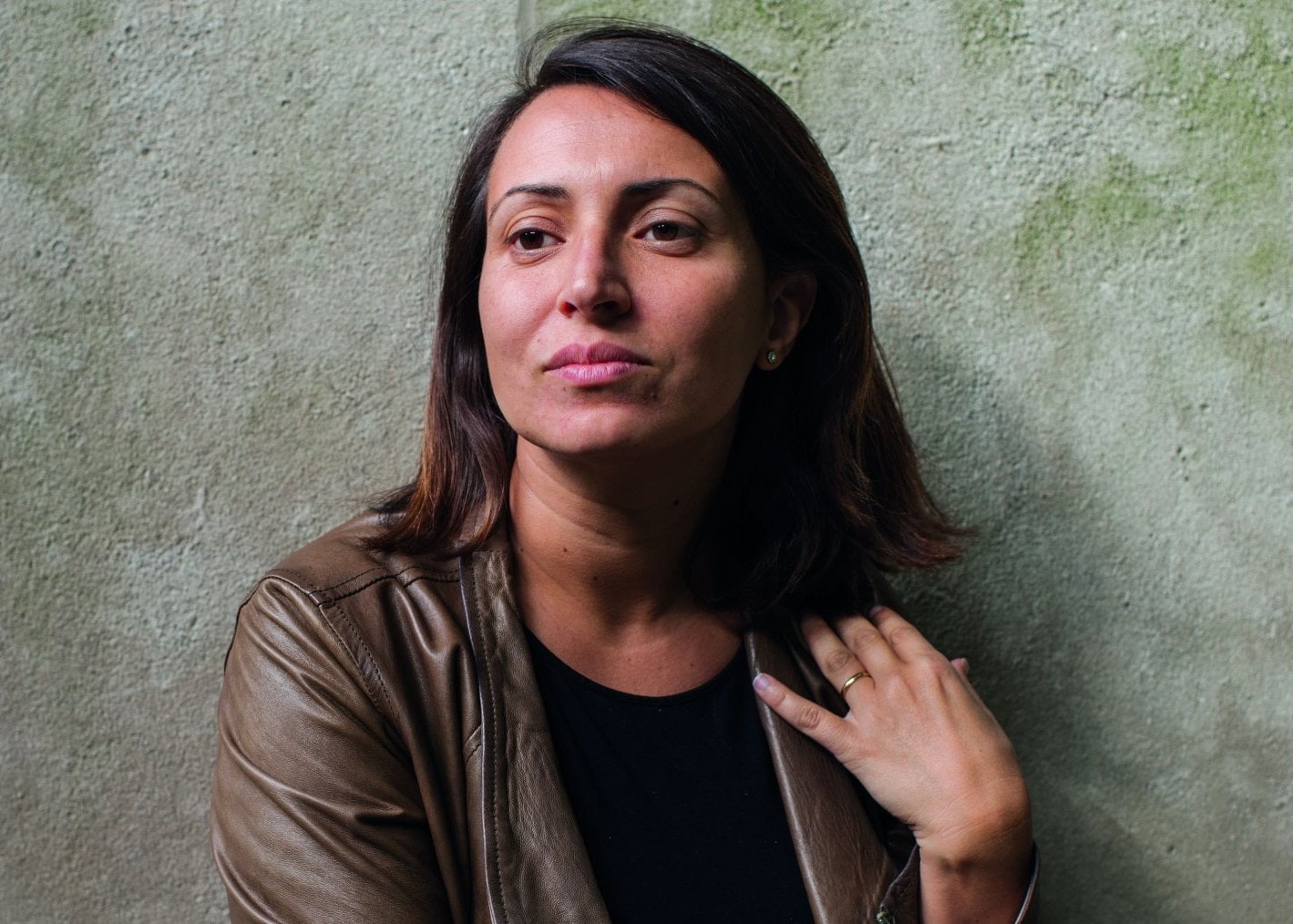
Anna Grassellino (Italian scientist at Fermilab in Chicago)
Scienziata di successo, madre di tre figli, giovane donna italiana del sud che ama l'Italia che l'ha cresciuta e gli Stati Uniti che l'hanno accolta. Viva Anna Grassellino, simbolo vincente

Sometimes it happens that I find out about the story of a person who personifies exactly the message that We the Italians has been representing for 10 years now: when Italy and the United States come together, the result is wonderful. Other times I have the pleasure of interviewing people who embody one or more positive symbols of Italy. Still other times, I happen to interview someone whose story, talent and well-deserved success represent the answer to some of our country's atavistic problems.
The great Italian who has done me the honor of being the protagonist of this new interview is so exceptional that she corresponds to all three of the above categories, and this is still not enough to describe her talents, her successes and her Italianness. This is why I am happy, proud and very grateful to welcome on We the Italians an extraordinary Italian scientist: Anna Grassellino. It is only by chance that this interview is published the day after an Italian has won the Nobel Prize for Physics. But let's say that the hope is that it will be a good omen so that the next Italian Nobel Prize in the field of science will be just her.
From Marsala, Sicily to Chicago, Illinois. This is a travel that many Italians have done in the past, but with completely different stories than yours … please tell us more about you
Yes. I left my hometown Marsala when I was 17, I guess. I went to study electronic engineering at University of Pisa. A year before graduating from Pisa, I actually wanted to do an internship abroad, I wanted to really see and learn how research was done somewhere else outside Italy.
At that time, there was a summer internship for INFN, National Institute for Nuclear Physics. Only nine people in Italy were selected to go to Fermilab as summer students. So I came to Fermilab for my first time in 2004, as a summer student, the year before my master graduation. And I really loved it. I loved everything about it, I found the US fascinating, and I found Fermilab in particular really a wonderful place because of such an international environment of people from all countries coming together to build the most complex experiment on the planet.
There were several professors looking for PhD students, one of which was Nigel Lockyer who is today the director of Fermilab. At that time, Nigel was a professor at University of Pennsylvania. Nigel was looking for students to work on the International Linear Collider and I was a good fit, because there was a need for electronic engineers working on electronics controls. That's how my journey started. I applied to University of Pennsylvania, and I got admitted into the Ph. D. program at University of Pennsylvania. So I graduated from University of Pisa with my masters in 2005 and a month later and I was already here for my PhD in Philadelphia.
Philadelphia was a nice chapter. I was there for two years approximately. I did my master’s in physics there and then Nigel became director of TRIUMF, the Canada's national lab for nuclear physics. I was offered the opportunity to move to Vancouver and do my PhD thesis there as I was done with classes. So I went to Vancouver, and I was lucky that I could do my PhD thesis on a real accelerator, at TRIUMF.
And then I was hired at Fermilab back in 2012. First as a postdoc, then I became an associate scientist, then scientists, then senior scientists. And also since the past few years, on top of research responsibility, I have also some management responsibilities. Years ago I became deputy head of the Applied Physics and Superconducting Technology Division of Fermilab: that's a really important division at Fermilab, I think the second largest. This is where we advance the technologies for particle accelerators, superconducting cavity, superconducting magnets, and cryogenic: for example, we develop the technologies and we build the particle accelerator for our complex but also for labs all across the globe.
A couple years ago we started to work on accelerators also to be used in the field of quantum computing, and we became the best at making this. This is the foundation from which we applied to the National Quantum Center, which we were awarded last year. When that happened I became director of this new National Quantum Center. It's been less than a year, but it's been a very exciting journey. So that's kind of like my long journey from Marsala, Sicily, all the way to Chicago today.
Let’s talk about Fermilab. We are proud that there is such an important facility in the United States named after an Italian scientist. We ask you to briefly describe to our readers what Fermilab is, when it was born and what is its mission
Yes, it's a reason for pride for all of us Italians, actually the percentage of Italians here is quite high. We have a lot of Italians, also in leadership positions. Fermilab is the US high energy physics laboratory. So we are really the one laboratory that is fully funded by the Department of Energy Office of Science at High Energy Physics. 98% of our funding comes from High Energy Physics, which means 98% of what we do, really goes towards fundamental understanding the microscopic world that surrounds us, so the world of particles.
The history of Fermilab dates back more than 50 years, when Fermilab was founded. The idea was to build a revolutionary machine that would allow to smash particles and really study the fragments to understand what matters is made of. Fermilab invented a lot of technologies that today have an impact broadly on society.
To help me and the readers of We the Italians who aren't experts in physics and quantum computing: what are the innovations that will come into our future daily lives from the work you are doing?
For example, for the Quantum Endeavor, the center that now I am Director of we are building the most powerful quantum computer in the world. A quantum computer is a computer that will be much more powerful than classical computers for certain applications, almost like comparing a car to an airplane. So not an old car with a new car, but really a car with an airplane. One of the areas where the quantum computers will be able to do what the classic computers don’t is, for example, in the field of national security, in cryptography. If there’s an encryption that even the largest and most powerful supercomputer in the world would need hundreds and hundreds of years to decode, a quantum computer will be able to do that in few minutes.
The part that interests us the most is in science and in medicine. Quantum computer could be able to solve and do some incredible simulations. For example on proteins, molecules interacting with each other. It could open a lot of potential avenues in the field of medicine, for example. Even in physics itself it may help us: when we smash particles we then have to reconstruct these events still with a classical computer, and from there, run some models and try to understand. But the quantum computer works based on principles that are closer to how particles behave, the laws that govern a particle. And so in reality, quantum computers may help us interpret differently even atoms collisions. Maybe the data we already possess could be looked with different glasses, and maybe we could be able to see things that otherwise we haven’t seen before in the way we have analyzed those data. Cell phones or computers, but actually everything works based on fundamental laws of physics. A revolution on our knowledge about this could bring a revolution in our everyday’s life.
The collaboration between Italy and the United States in the scientific field is very advanced. Is this also happening in the project you are leading?
Yes. The center that I'm directing, it's composed of 20 partners. And the United States Department of Energy was very happy when we proposed that one of the partners would be actually the Italian National Institute for Nuclear Physics (INFN). In the whole quantum initiative in the US there's only two international partners: one is Italy, and one is Canada. I think this says a lot about the strong relationship between the US and Italy. Fermilab and INFN have being collaborating for many years, in neutrino physics, in particle physics, and now in quantum computing: we actually have more than a dozen collaborators from INFN participating actively in our project. We will be testing some of the devices and structures that we make at the Gran Sasso laboratory, which has an underground facility that is unique in the world. Also we have collaboration with Italian laboratories and structures from Rome, Frascati, Padova and Pavia. We are also looking now into expanding partnership with the University of Milan Bicocca and with University of Pisa.
Dr. Grassellino, please correct me if I'm wrong. You are building the most powerful quantum computer in the world. To do so you are the leader of a team that manages $115 million, with 200 scientists. You just turned 40. You are a wife and mom of three. What’s your secret?
I think Fermilab has helped me out a lot in the sense that, for example, we have daycare on site. It's true that having kids and trying to do all this is not easy. Fermilab having a daycare on site has been critical, like we brought our kids to the daycare when they were like six to 12 weeks, very little, but I was still able to go and see them. So that has been a big help. And of course my husband has been a great help, too. We are a very good team. Between us it has never been either about my or his career, it has always been a teamwork to try to be both successful.
But you must have a secret. I mean, maybe there's something in your DNA, maybe because you're Italian, maybe because you're Sicilian. I don't know how you do it all at the same time…
One important thing is that I've always been a person who is never happy with the status quo. I always feel the urge to do more, to push for the next step and to be looking at the future. So I think that has always been a big push, and it’s the same for my husband. So our teamwork is not just at home: he's a scientist here as well. He is the Chief Technology Officer at Fermilab. We work as a team when we really try to make new discoveries, to build new facilities for the next generation. We both have a great team that we have put together, with many other Italians as well together with scientists from all around the world.
Can you also find time to hang out with the Italian community in Chicago? Is there a place of where you live now that in a way remembers you of Italy?
I put some effort a few years ago. Lately, I have to say, I don’t have as much time, frankly: but a few years ago I did connect and had a chance to hang out with many fellow Italians from the Italian community in Chicago. They do a wonderful job to celebrate and represent Italy in this area.
Italy has given birth to great researchers and scientists who are praised in the United States. When President Obama awarded you with the Presidential Early Career Awards for Scientists and Engineers, he said that you were one of the most promising young person on earth. What does Italy have to do, and what has Italy not yet done, and what do you hope it will do, to stop sending so many brilliant young minds away, and to ensure that you and others like you find the right environment to return one day?
I thank you for not using the phrase “brain drain”, which is usually used in questions like this. I don't feel that we are brains. What is a brain drain? It's a good thing that we go from Italy to other parts of the world. First of all, we raise our flag in the world and remind everyone how talented Italians are: I don't think that there is a doubt about that. I think we Italians have a very special talent in science. And so I think it's great that we go abroad, and we show that and we actually further improve, because we draw on diversity, right? We learn from going out and seeing how other countries think and do things, and from interacting with other people.
Yes, maybe what would be best is that Italy also would move a little more on this model like the US. Yes, it would be nice not just to give, but also to take: to host scientists from other countries, too. I think that is where we're lacking a little bit. Some realities in Italy are pretty international, but some else should do more. Our culture, I think has to change in that.
For instance, let’s consider the fact that we are not as proficient as other countries in speaking English. I think that has to change because it makes a difference for people to come and not feel an outsider. If there is a universal language that everybody speaks, we need to learn that. Here in the US I learned the advantage of being able to listen and learn and take from others, and on this matter Italy can do better.
Another thing that should change in Italy are salaries. Of course the research funds here in the US are huge, there is no denying that, and that is one reason why many people come here and don’t go to Italy. But I think that Italy should invest more in paying researchers, and consider what their career could be, especially in science. If the prospect is to be on a temporary researcher status with a tiny salary for decades, that is not very appealing. That’s a big reason why people explore opportunities somewhere else.
You are undoubtedly an Italian excellence who has found in the US the ideal environment to be valued as you deserve. Your DNA, your schooling and the environment made up of people, places and culture in the broadest possible sense you grew up in, have been fundamental in cultivating your talent and your desire to innovate, improve and learn. I consider you an extraordinary scientist but also a success of our country, in the sense that I believe and hope that there is a lot of Italy in you. I don't know if We the Italians has the right to be proud of a person like you, I hope so because that's how we feel. Am I wrong?
I think that the school system in Italy is outstanding, much better than other countries. I think I was formed in a way that really brought me to analytical thinking. By studying Latin, I learnt a lot of things that otherwise I wouldn't have studied. And then the university as well: University of Pisa gave me a really strong background. And of course, it was not like in the US where you have to do everything pretty much alone to be able to have loans you’ll have to repay in the future if you ant to keep on studying. I'm thankful that in Italy I was able to study without investing that much. I will be forever thankful for that. And I will be forever thankful for the fact that I felt so much affection really from Italy for the achievements that I've had. So I think that Italy has been amazing for me and has given me a big push.
In 2020, in the Italian universities, compared to a male enrollment rate of 48.5 %, the female enrollment rate was 65.7 %. Enrolled women are more, and growing at a fastest rate. The number of freshmen increased above all in the Central (+7.7%) and Southern (+5%) regions. 29.9 % of these new Italian students signed up in a STEM course (as to say Science, Technology, Engineering and Mathematics). You are a woman, a scientist, a southern Italian: you represent three symbols of needed change for Italy, all at once. What would you say to a young girl from southern Italy who dreams of a career like yours?
What I would say is to really embrace the American philosophy of "Yes, you can." Don't be afraid. Don't think that there are things that are not achievable, because anything can be achieved. I think this is absolutely the most important thing that I can say. Sometimes young women can get discouraged. But I think things are changing. And I think people are working on changing things. And so don't get discouraged and really try and reach out and look beyond and don't be afraid to send an email and say “I would like to do this” or walk into an office of someone important and say "I think I can do this, can I participate? Can I do this PhD? Can I get this job?" I think that this is the most important message.
You may be interested
-
'Phantom Limb': A Conversation With Dennis...
Dennis Palumbo is a thriller writer and psychotherapist in private practice. He's the auth...
-
2015 scholarship competition
The La Famiglia Scholarship committee is pleased to announce the financial aid competition...
-
Arnaldo Trabucco, celebrated medical practit...
Arnaldo Trabucco, MD, FACS is a leading urologist who received his medical training at ins...
-
Davide Gambino è il miglior "Young Italian F...
Si intitola Pietra Pesante, ed è il miglior giovane documentario italiano, a detta della N...
-
Emanuele: cervello d'Italia al Mit di Boston
Si chiama Emanuele Ceccarelli lo studente del liceo Galvani di Bologna unico italiano amme...
-
Exciting Palatine. Interview with Clementina...
You can tell she fills with excitement when she has the chance to show an important archae...
-
ISSNAF medical imaging science chapter meeti...
AGENDA 12.00 – 12.15 Light lunch12.15 – 12.30Welcome addresses Lorenzo Mannelli, MD, PhD...
-
Italian American Culture Night
Tuesday, April 14 - 6.30 pm EDTSt. James Church Rocky Hill - 767 Elm St, Rocky Hill,...






